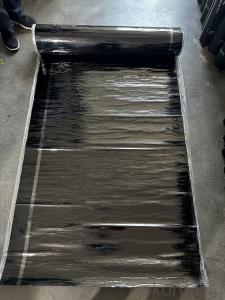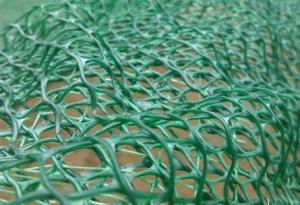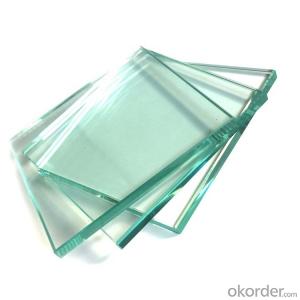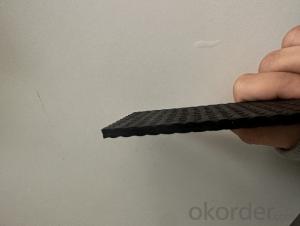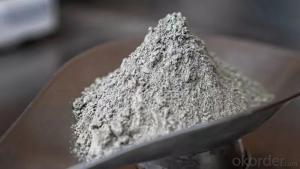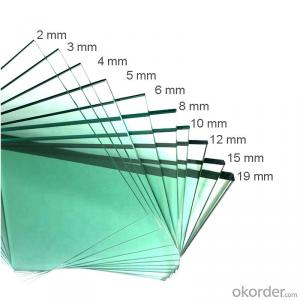Reinforced PVC waterproof membrane
- Loading Port:
- Qingdao
- Payment Terms:
- TT OR LC
- Min Order Qty:
- -
- Supply Capability:
- 100000 m²/month
OKorder Service Pledge
OKorder Financial Service
You Might Also Like
PVC (polyvinyl chloride) roof membrane
is an excellent high quality polymer waterproof sheet, made of PVC resin by adding plasticizer,
anti-UV agent, anti aging agent, and stabilizer and other processing aids through extrusion
and molding.As the highly recommended product by the Ministry of Construction, it is featured by high tensile
strength, great elongation, good stability, small shrinkage, low temperature performances, good resistance to
weathering and root penetration, and long service life.
Physical Property:
1.Good combination of high elasticity and tensile strength.
2.Fine resistance to static electricity.
3.Excellent resistance to ageing / weathering.
4.Durable,the effective age can be more than 20 years used on exposed surfaces,used on non-exposed surfaces,it can reach 50 years.
5.Fine flexibility at low temperature,adaptable to cold conditions.
6.Root-resistance,can be used on the planting roofs.
7.Fine puncture resistance, joint peel strength and joint shear strength.
8.Fine UV-resistance,no pollution to environment.
9.Easily welding,installing,secure.
10.Easy treatments to the delicate parts of corners and edges.
11.Convenient maintenance with low cost.
Polyvinyl Chloride (PVC) membrane with fiber reinforced layer
on the back is widely used in the roofs of civil buildings,
tunnels, channels, subways, highways, planting roofs, the roofs of steel
frame structure buildings, and etc.
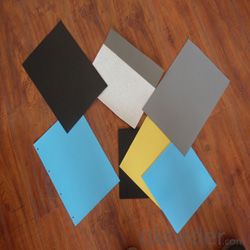
- Q:How long do waterproofing membranes typically last?
- The typical lifespan of waterproofing membranes ranges from 20 to 30 years, with various factors influencing their durability. These factors include the membrane's quality, installation method, and maintenance practices. Membranes of higher quality and those installed and maintained properly can last closer to 30 years. Conversely, lower-quality membranes or those exposed to harsh conditions may have a shorter lifespan. Regular inspections and prompt repairs can also contribute to extending the longevity of waterproofing membranes. It is crucial to recognize that these estimates are general and the actual lifespan may differ based on specific circumstances and conditions of membrane usage.
- Q:How does a waterproofing membrane handle exposure to high temperatures?
- A waterproofing membrane is specifically designed to handle exposure to high temperatures without compromising its integrity or effectiveness. It is typically made from durable materials such as synthetic rubber or modified bitumen that have high heat resistance properties. This allows the membrane to withstand extreme temperatures without melting, deforming, or losing its waterproofing capabilities. Additionally, some membranes may have additional heat-reflective coatings or insulation layers to further enhance their ability to handle high temperatures.
- Q:Can a waterproofing membrane be used on tunnels with security systems?
- Indeed, tunnels with security systems can utilize a waterproofing membrane. It is strongly advised to employ a waterproofing membrane in tunnels, particularly those equipped with security systems, to safeguard the infrastructure and valuable equipment from water harm. Waterproofing membranes are specifically crafted to impede water infiltration, furnishing a protective shield against water leakage and potential complications stemming from moisture, such as corrosion, mold propagation, and structural degradation. By implementing a waterproofing membrane in tunnels featuring security systems, the integrity of the tunnel structure and the efficacy of the security systems can be upheld, guaranteeing the facility's safety and security.
- Q:Whether the polyester waterproofing membrane can be used for roofing waterproofing
- 3, even if the roof exposed, the sun exposure is no problem, because the membrane waterproof layer above is to do the protective layer, insulation layer, rather than directly waterproof layer set in the open air;
- Q:Do you know how many square meters of waterproofing membrane to send a set of tests?
- Modified asphalt polyethylene tire waterproofing membrane: any volume in the distance 2m at the end of the interception of 1m full-width coil sample 2, 1000 volumes for a group, the lack of a group also
- Q:BS waterproofing membrane is modified? There are not a few thick drawings, how to do
- Do not indicate the thickness can contact the design unit, you can also judge according to the waterproof level
- Q:Can a waterproofing membrane be used for soundproofing purposes?
- No, a waterproofing membrane cannot be used for soundproofing purposes as it is specifically designed to prevent the penetration of water and does not have the necessary properties to effectively block or absorb sound waves.
- Q:Can a waterproofing membrane be used for a foundation?
- Yes, a waterproofing membrane can be used for a foundation. Waterproofing membranes are designed to provide a barrier against water infiltration and can be used to protect the foundation from moisture damage. These membranes are typically made from materials such as bitumen, rubberized asphalt, or polymer-based sheets that are installed on the exterior side of the foundation walls. They are designed to prevent water from seeping into the foundation, which can help to prevent potential issues such as water damage, mold growth, and structural deterioration. It is important to ensure that the waterproofing membrane is properly installed and meets the specific requirements of the foundation to ensure its effectiveness.
- Q:Does a waterproofing membrane require any specific safety precautions during installation?
- Yes, installing a waterproofing membrane does require specific safety precautions. Here are some key precautions to consider: 1. Personal Protective Equipment (PPE): Installers should wear appropriate PPE, including gloves, safety glasses, and protective clothing to prevent skin contact with the membrane and any potential chemical hazards. 2. Adequate Ventilation: Ensure the installation area is well-ventilated to prevent the buildup of fumes or vapors. If working in an enclosed space, use proper ventilation systems to remove any potentially harmful gases or odors. 3. Hazardous Chemicals: Some waterproofing membranes may contain hazardous chemicals or solvents. Installers should carefully read and follow the manufacturer's instructions for handling and using these products. Proper storage, handling, and disposal of chemicals should be observed to avoid accidents or environmental contamination. 4. Slips and Falls: During installation, the surface can become slippery, especially if the membrane is applied on wet surfaces. Installers should take precautions to secure their footing and use appropriate safety equipment like harnesses or guardrails when working at heights to prevent falls. 5. Heat Hazards: Some waterproofing membranes require the use of heat for proper installation. Installers should take precautions when working with heat sources like torches or heat guns to prevent burns or fire hazards. Fire extinguishers should be readily available, and proper training on fire safety protocols is essential. 6. Electrical Safety: Waterproofing membranes may be installed in areas where electrical systems are present. Installers should be cautious when working near live electrical wires or outlets and follow proper electrical safety procedures to prevent electric shocks or fires. It is important for installers to receive proper training and follow all safety guidelines provided by the manufacturer to minimize the risk of accidents, injuries, or property damage during the installation process.
- Q:Can a waterproofing membrane be used for convention centers or exhibition halls?
- Yes, a waterproofing membrane can be used for convention centers or exhibition halls. Waterproofing membranes are commonly used in construction to protect buildings from water damage and leakage. Given the potential for water infiltration in large spaces like convention centers or exhibition halls, using a waterproofing membrane can help ensure the integrity and durability of the structure by preventing water penetration and potential damage.
1. Manufacturer Overview |
|
|---|---|
| Location | |
| Year Established | |
| Annual Output Value | |
| Main Markets | |
| Company Certifications | |
2. Manufacturer Certificates |
|
|---|---|
| a) Certification Name | |
| Range | |
| Reference | |
| Validity Period | |
3. Manufacturer Capability |
|
|---|---|
| a)Trade Capacity | |
| Nearest Port | |
| Export Percentage | |
| No.of Employees in Trade Department | |
| Language Spoken: | |
| b)Factory Information | |
| Factory Size: | |
| No. of Production Lines | |
| Contract Manufacturing | |
| Product Price Range | |
Send your message to us
Reinforced PVC waterproof membrane
- Loading Port:
- Qingdao
- Payment Terms:
- TT OR LC
- Min Order Qty:
- -
- Supply Capability:
- 100000 m²/month
OKorder Service Pledge
OKorder Financial Service
Similar products
New products
Hot products
Related keywords


















